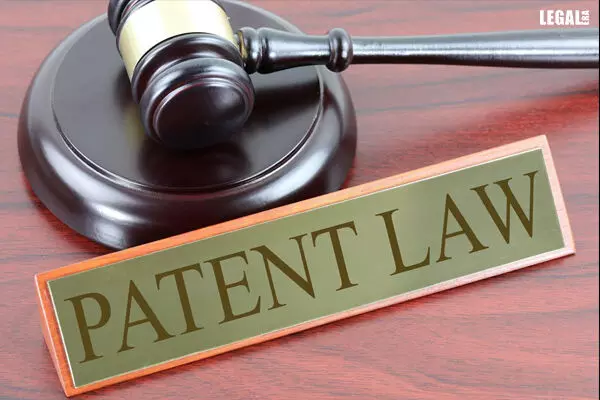- Home
- News
- Articles+
- Aerospace
- Artificial Intelligence
- Agriculture
- Alternate Dispute Resolution
- Arbitration & Mediation
- Banking and Finance
- Bankruptcy
- Book Review
- Bribery & Corruption
- Commercial Litigation
- Competition Law
- Conference Reports
- Consumer Products
- Contract
- Corporate Governance
- Corporate Law
- Covid-19
- Cryptocurrency
- Cybersecurity
- Data Protection
- Defence
- Digital Economy
- E-commerce
- Employment Law
- Energy and Natural Resources
- Entertainment and Sports Law
- Environmental Law
- Environmental, Social, and Governance
- Foreign Direct Investment
- Food and Beverage
- Gaming
- Health Care
- IBC Diaries
- In Focus
- Inclusion & Diversity
- Insurance Law
- Intellectual Property
- International Law
- IP & Tech Era
- Know the Law
- Labour Laws
- Law & Policy and Regulation
- Litigation
- Litigation Funding
- Manufacturing
- Mergers & Acquisitions
- NFTs
- Privacy
- Private Equity
- Project Finance
- Real Estate
- Risk and Compliance
- Student Corner
- Take On Board
- Tax
- Technology Media and Telecom
- Tributes
- Viewpoint
- Zoom In
- Law Firms
- In-House
- Rankings
- E-Magazine
- Legal Era TV
- Events
- Middle East
- Africa
- News
- Articles
- Aerospace
- Artificial Intelligence
- Agriculture
- Alternate Dispute Resolution
- Arbitration & Mediation
- Banking and Finance
- Bankruptcy
- Book Review
- Bribery & Corruption
- Commercial Litigation
- Competition Law
- Conference Reports
- Consumer Products
- Contract
- Corporate Governance
- Corporate Law
- Covid-19
- Cryptocurrency
- Cybersecurity
- Data Protection
- Defence
- Digital Economy
- E-commerce
- Employment Law
- Energy and Natural Resources
- Entertainment and Sports Law
- Environmental Law
- Environmental, Social, and Governance
- Foreign Direct Investment
- Food and Beverage
- Gaming
- Health Care
- IBC Diaries
- In Focus
- Inclusion & Diversity
- Insurance Law
- Intellectual Property
- International Law
- IP & Tech Era
- Know the Law
- Labour Laws
- Law & Policy and Regulation
- Litigation
- Litigation Funding
- Manufacturing
- Mergers & Acquisitions
- NFTs
- Privacy
- Private Equity
- Project Finance
- Real Estate
- Risk and Compliance
- Student Corner
- Take On Board
- Tax
- Technology Media and Telecom
- Tributes
- Viewpoint
- Zoom In
- Law Firms
- In-House
- Rankings
- E-Magazine
- Legal Era TV
- Events
- Middle East
- Africa
Shardul Amarchand Mangaldas successfully represents Nippon A&L Inc for an appeal challenging refusal of Nippon's patent application

Shardul Amarchand Mangaldas successfully represents Nippon A&L Inc for an appeal challenging refusal of Nippon's patent application.
Shardul Amarchand Mangaldas & Co., represented Nippon A&L Inc. to favourably obtain an order from the High Court of Delhi, on July 5, 2022, in an appeal challenging an order of the Controller of Patents, refusing Nippon's patent application.
On March 15, 2021, the Controller of Patents had passed the impugned order primarily on the ground that amending the preamble of a claim of a patent application amounts to changing scope covered by the claim – something that hitherto was not permissible under Section 59(1) of the Patents Act. During prosecution of their patent application, Nippon had amended a "product-by-process" claim to a "process" claim.
In a precedent setting judgement, the Court inter alia held that "amendments to a patent specification or claims prior to grant ought to be construed more liberally rather than narrowly". The Court observed that relevant provisions in law as well as legislative material prescribe that no new matter should be incorporated in claims.
"So long as the invention is disclosed in the specification and the claims are being restricted to the disclosures already made in the specification, the amendment ought not be rejected, especially, at the stage of examination prior to grant." Therefore, amendment of a "product-by-process" claim to a "process" claim, where the process is sufficiently disclosed and is not newly added, is now permissible and the amendment would be considered as narrowing the scope of the claims in compliance with the law.
Section 59(1), one of the more significant provisions, has not been the subject matter of many disputes or appeals. In the large number of cases where the scope of Section 59(1) has been called in question, amendments to the preamble, and the circumstances where such amendments can be permitted have not been appealed on account of its wording, which provides for multiple equally credible interpretations, the Controllers' narrower interpretation being taken as fait accompli. As a result, applicants have simply dropped their patent applications in India.
To this end, the present judgement fulfills the long-felt need for some room to make amendments. The IP fraternity has welcomed this case with a sense of relief.
The Shardul Amarchand Mangaldas & Co was led by Jogeshwar Mishra, Principal Associate, along with Neha Khanduri, Senior Associate, and M. Kisoth, Consultant.




